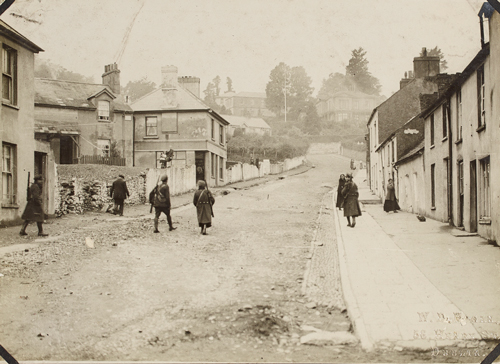Peace prospects discussed as official account of Ballyseedy events challenged by survivor
Cork, 28 March 1923 - Cork Corporation has unanimously backed a motion calling on the city’s Deputy Lord Mayor to summon a public meeting of citizens at which the people’s desire for peace could be ‘voiced with fitting dignity.’
The motion, moved by Cllr. J. Sheehan also notes that the policy of wholesale executions adopted by the Free State government had little or no support from ordinary people whatever their political background and it stood now as ‘darkness between us and advent of peace.’
The impetus for the Cork resolution is clearly the visit to Ireland of Monsignor Salvatore Luzio who arrived in Ireland on March 19th on a Papal mission of peace.
Cllr. Sheehan’s resolution acknowledged the great need ‘for his mission’ and states that should the Monsignor help bring peace closer, then ‘Ireland will be more closely than ever find itself united to the Papal Throne.’
The urgency of securing peace for Cork in particular was underlined by Councillor Forde, who declared to the meeting that Cork had come through the ‘gates of hell, and if not rescued immediately the probability is she will be burned there.’ However, peace proposals already submitted by Archbishop Harty of Cashel have already been rejected by the Free State government.
The Freeman’s Journal is nevertheless reporting that proposals put forward by Archbishop Harty have been put before the leadership of the anti-Treaty republican movement and are being discussed in a favourable manner. In contradiction of this, however, it is understood that posters have been extensively circulated in East Kerry, purportedly signed by a local leader of the Irregulars, warning the public against listening to ‘peace overtures which emanate from the nominees of Britain ’, and stating that Kerry will ‘fight alone for a Republic.’
In a further indication that peace efforts were not the moving at
the speed that some had hoped, Dr. Patrick McCartan earlier this
week withdrew a motion in which the Dáil would express its
satisfaction at ‘the development in the South in favour of
peace, and expresses the opinion that the proposals made afford a
fair basis of settlement.’Dr. McCartan made clear that while
peace hopes had not been abandoned, the situation had not
progressed in a way he had hoped it would.
Kerry has of course been at the epicentre of some of the worst
events of the Civil War in recent weeks. Notable among the grim
catalogue has been a series of major incidents involving mine
explosions each of which ended with multiple fatalities.
One of the worst of these occurred at Ballyseedy Bridge which an official report issued from National Army Headquarters claimed that troops from Tralee had taken a number of prisoners from the town and required them to remove a barricade from the bridge, in the process of which an explosion was triggered killing eight of the prisoners and injuring three of the soldiers.
However, a prisoner who managed to escape the scene at Ballyseedy has since challenged this official version of events and has, the labour leader Thomas Johnson informed the Dáil, made the most ‘serious allegations as to the cause of the death of the prisoners.’
Mr. Johnson asked President Cosgrave whether he would agree to an ‘open inquiry’ into the events at Ballyseedy. The President deferred the matter to his Minister for Defence, General Mulcahy, who told the Dáil that he could not confirm whether an inquest into the Ballyseedy deaths had been held, but that he was taking immediate steps to institute an inquiry into the circumstances.
[Editor's note: This is an article from Century Ireland, a fortnightly online newspaper, written from the perspective of a journalist 100 years ago, based on news reports of the time.]





















